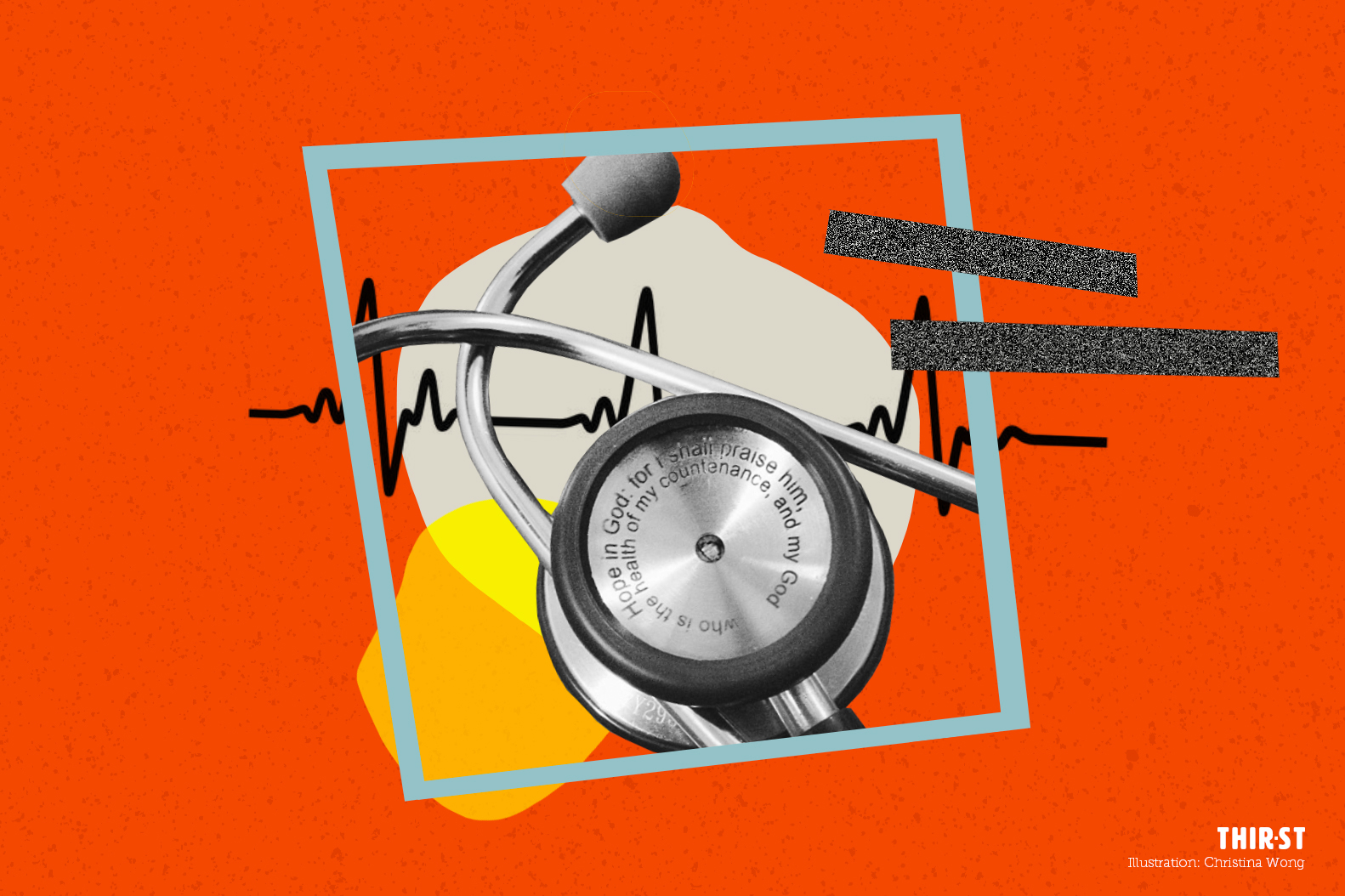When did it all begin? Perhaps it was the night I tossed and turned after reading the scientific medical journal, as the seriousness of Covid-19 sank in.
I have seen a hundred of patients with coronavirus over the past few weeks.
What if I were an asymptomatic carrier and had gone on to pass the virus to my sickly, elderly parents and young nephews? What if one of my closest and dearest friends had the virus and fell seriously ill?
FRONTLINE AND CENTRE
All eyes are now on the healthcare workers of Singapore as we, your frontline staff, do the things that have always been normal and second nature to us.
We still wake up, go to work, treat our patients and go home afterwards. But our priorities are slightly different now.
Knowing that we are at higher risk of exposure, my friends and I have made adjustments to our lives.
- Some have moved out of the home we share with our elderly parents.
- Some have dinner with our children over FaceTime.
- We separate our laundry from that of our family members.
- We go overboard with the cleaning in our clinics.
- Some of us literally “ran away” from children (who thought we were playing a fun game of catch).
As I speak to my friends from healthcare, the same words keep coming up: “I am scared.”
The very people who fight on the frontlines, who understand the situation well, are fearful.
I watched Singapore go through different phases of frenzy – from buying up all the masks to mass panic-buying after the risk assessment was raised to DORSCON Orange. And even shunning healthcare workers in public.
I could laugh off these behaviours because I’ve worked in the industry long enough and have gotten used to the various ways people react when they are scared and suffering.
From drivers refusing to send us to hospitals to commuters on the trains being upset with nurses in uniform, I saw all these as symptoms of something much bigger.
Deep down, everyone was fearful of death. They were fearful for themselves or for their loved ones.
PANIC OR PREPARE
In her panic, my mum asked me to stop working at the high-risk area I’m at. I gently told her that, all the more so, I could not leave my workplace during a crisis.
My senior also shared about his time in SARS. His son would cry: “Daddy, don’t go to work!” But he still chose to go.
For as a Christian who was certain of where he would go after death, he wanted to volunteer first before his other colleagues who might not have that same assurance.
We are prepared to die today.
My best friend, also a Christian doctor, told me that he volunteered for the high-risk job in his department. My reply to him was: “Me too, because we are prepared to die today.”
Are we being heroes or being brave? Neither.
We are still fearful, but God has told us in Joshua 1:9: “Have I not commanded you? Be strong and courageous. Do not be afraid; do not be discouraged, for the Lord your God will be with you wherever you go.”
Because in the face of death, we have the full assurance of faith and an eternal life in heaven with God to look forward to. For me to live is Christ, and to die is gain (Philippians 1:21).
FAITH, NOT FEAR
To those of us who are scrambling in fear and panic, perhaps now is the time to think of where you would go after death.
After all, in Matthew 10:28 (KJV), Jesus said: “And fear not them which kill the body, but are not able to kill the soul: but rather fear him which is able to destroy both soul and body in hell.”
As someone who has seen death in all shapes and forms, it is often at the back of my mind: Death can happen to anyone, at anytime.
And physical death is one thing – but eternal death is something else entirely.
We, as physicians, should not just treat the symptoms – the panic buying, the mask-madness, the rampant fear – but the root of the problem.
The Bible has the answer: “For the wages of sin is death; but the gift of God is eternal life through Jesus Christ our Lord.” (Romans 6:23)
Christ has already died on the Cross to save sinners like us.
The treatment is simple: We need a Saviour, an anchor of the soul – a hope that is sure and steadfast.
During this season, as we contemplate life and death, may we fear less.
As the psalmist has written: “Lord, make me to know mine end, and the measure of my days, what it is: that I may know how frail I am.” (Psalm 39:4 ESV)
Our response should echo his: “And now, O Lord, for what do I wait? My hope is in You.”
The writer is a medical doctor working in a private health institution. Her name has been changed for confidentiality.
This story was first published on Thir.st.






